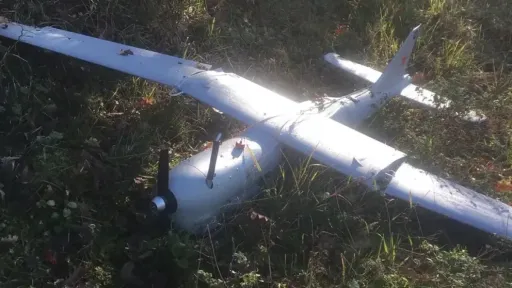As the Dutch head to the polls on the 15th, the last few days have been filled with tension between the Netherlands and Turkey.
Turkish ministers wish to address their citizens living in the Netherlands as part of a campaign for the referendum that will be held in Turkey on April 16. The referendum asks the public whether they would like to change Turkey's system from a parliamentary system to a presidential system. Subsequent to Germany, the Netherlands has also stated that they are not in favour of the arrival of Turkish diplomats in their country to campaign on Turkish politics. Tit for tat swipes have led to a situation in which ties between Ankara and The Hague have become strained.
There are several absurd reasons the Dutch have provided as to why they do not want Turkish politicians campaigning in their country. Their main allegation is that campaigns from foreign politicians can be a threat to security and public order in their country.
However, the fact that the Turkish foreign minister's flight permit has been cancelled has led to a severe level of tension between the two countries. The nearly half million Turks living in the Netherlands feel betrayed by the Dutch government as the Turkish family minister was not even allowed to enter the Turkish consulate. In Rotterdam, the Netherland's second biggest city, hundreds of people gathered in front of the Turkish consulate to indicate their opposition to Netherlands' negative attitude. Dutch police have reacted violently against the demonstrators and have even resorted to using their dogs.
The Rivalry between Wilders and Rutte Aiming on the Rightists' Votes
Prime Minister Mark Rutte's party, the People's Party for Freedom and Democracy (VVD) defines itself as "conservative-liberal", has been the ruling party for the last five years. The most recent polls suggest that the far-right party of Geert Wilders, is the leading party in the next elections.
Due to the fact that a far-right party is leading in the polls, the current ruling party is aiming capture the vote bank of Wilders. Therefore, opposing the involvement of a foreign country like Turkey, is a strong right-wing credential to brandish.
Moreover, it has spurred on the incumbent government to take bolder actions and prove that they share opinions similar to those of the PVV. As Wilders sharpens its anti-Muslim, anti-immigrant and anti-Turkey discourse, the VVD has also intensified populist statements to get ahead of Wilders by appealing to his supporters.
The decision of the prime minister to cancel the flight permit of the foreign minister of Turkey has to be evaluated in this context. Rutte has previously engaged in rightist appeals as well. For instance, on a Dutch television program, Rutte was shown a film of a group of Turkish-Dutch demonstrators squabbling with a reporter in Rotterdam, following the attempted coup in Turkey. Commenting on the video Rutte said : "My primary first feeling is: f*** off. Go back to Turkey".
He added that there is a minority among Turks in the Netherlands who still stand outside society. His statements have caused serious tensions in the Netherlands. Even his own party members reacted furiously by claiming that such statements are ridiculous, and that they just encourage people who behave badly.
In terms of the rivalry between him and Wilders, one of Rutte's last tweets indicates how he intends to swallow up the PVV. He tweeted the following referring to Wilders: "Are we going to give our country to someone who causes chaos and who is a deserter? Ore are we going to build further to our beautiful country?"
He implies that Wilders causes only more and more chaos by never explaining how he is going to approach his promised policies. On the other hand, Wilders claims that Rutte cancelled the flight permit of the Turkish foreign minister thanks to the work of his party. "Without the PVV, such a decision was never taken, Rutte has only courage when the PVV demands something and when the elections are coming close".
About stopping Turkish ministers entering the Netherlands, he said: "Thanks to heavy PVV-pressure a few days before the Dutch elections our government did NOT allow the Turkish ministers to land here!"
The PVV has openly claimed responsibility for cancelling the flight of the minister of foreign affairs, and hindering Turkey's family minister from coming to Rotterdam. The Netherlands has in this regard violated all its principles based on freedom. It has taken the freedom of speech and right to protest from a half million Turkish voters.
His tweets on the night of the protests of Turkish citizens in front of the consulate in Rotterdam show his anti-Turkish stance:
"The Netherlands sees now that these people are Turkish, they are non-Dutch people. They have our passports, but do not belong to us. They have no business here."
"For decades, open borders, mass-migration, no integration, and the possession of dual-nationality. This is the result."
"That's right, I say to all Turks in the Netherlands who agree with Erdogan, go back to Turkey and never ever come back again."
The Establishment of a pro-immigrant Party; DENK
DENK that refers to ‘think' in Dutch, is the name of a newly established pro-immigrant party in the Netherlands, which is run by people from an immigrant background. Their main aim is to fight against racism and xenophobia, which they claim is constantly on the rise in the Netherlands. They emerged as a response to the increasingly populist and nationalist political discourse in the country.
Dutch parties consider that a big majority of the votes of ethnic minorities will go to DENK, because they are the ones who raise their voice on behalf of minorities. The main parties have conceded that they will lose the migrant vote and have instead strengthened their anti-minority statements and policies. Whenever Dutch parties have seen that minorities have become politically significant for them, they have blatantly adopted a negative attitude towards their citizens with Turkish origins.
























